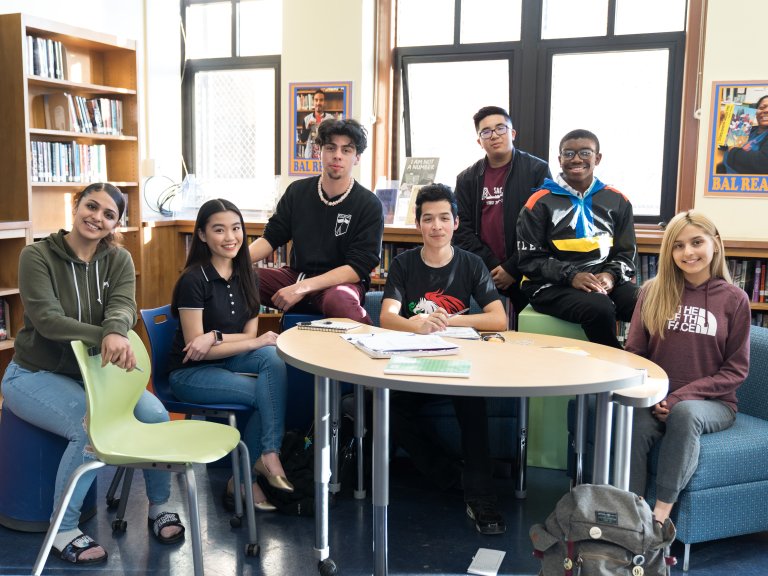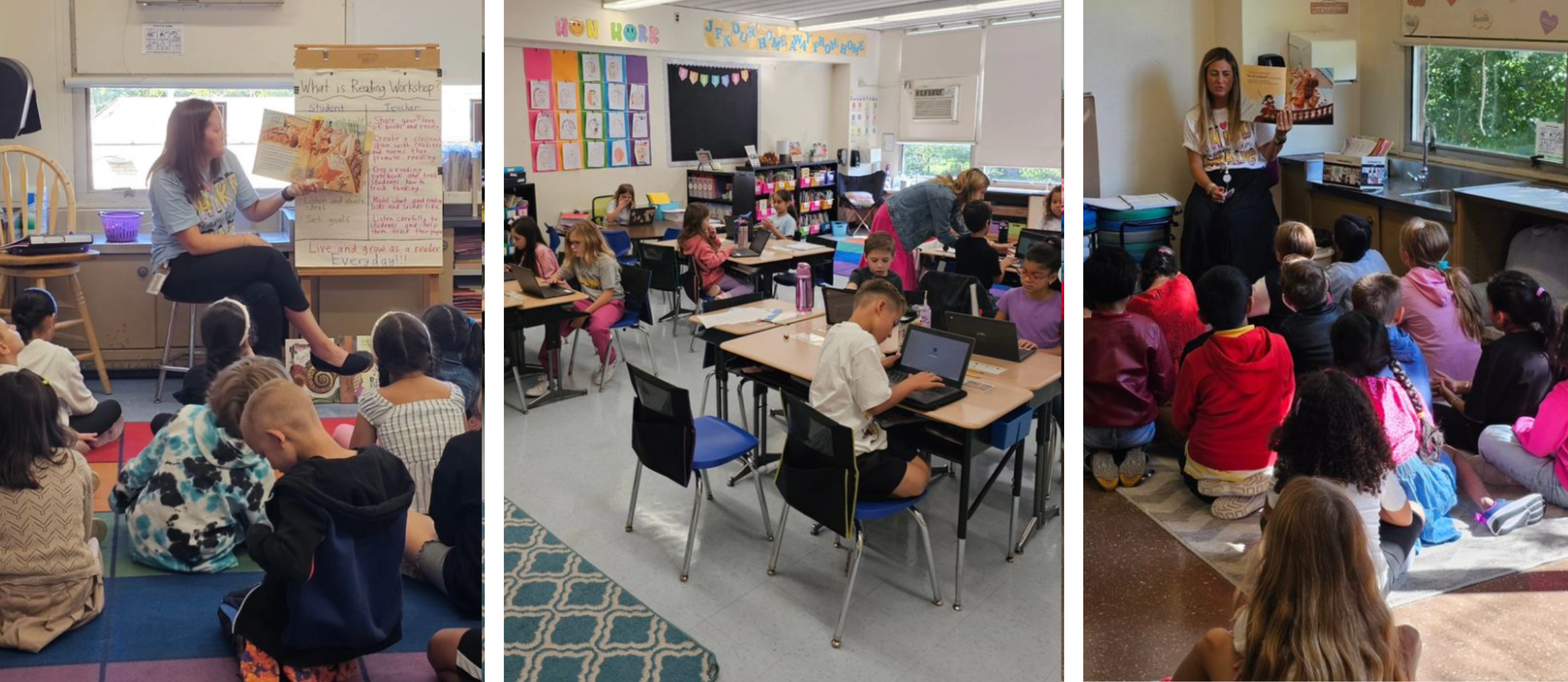The Function of Moms And Dads and Teachers in the Effort to Save Temecula Schools
The Function of Moms And Dads and Teachers in the Effort to Save Temecula Schools
Blog Article
Comprehending the Significance of Colleges in Child Advancement and Community Growth
Schools act as essential institutions for child development and neighborhood development, supplying environments where academic achievements are enhanced by the farming of social abilities and exposure to diverse viewpoints. These academic setups not just advertise vital reasoning and reliable communication however also foster compassion through collective tasks. Institutions' engagement with regional neighborhoods with service-learning efforts reinforces the bond between families and educational organizations. This symbiotic relationship highlights the relevance of schools in supporting active citizenship and lifelong discovering routines. Nevertheless, what are the certain systems through which these establishments accomplish such profound effects?
Academic Achievement
Academic achievement functions as a foundation of youngster advancement, offering the foundation upon which future learning and success are built. Colleges play a critical duty in cultivating this academic development, providing structured environments where youngsters can get important understanding and cognitive skills. Standard educational program make sure that trainees gain efficiency in core topics such as mathematics, scientific research, and language arts, which are essential for both college and professional opportunities.
Along with imparting basic scholastic abilities, colleges additionally cultivate essential reasoning, problem-solving abilities, and intellectual inquisitiveness. These cognitive expertises are essential for navigating complex real-world circumstances and adjusting to the ever-evolving demands of the modern-day workplace. Educators, as facilitators of discovering, utilize diverse instructional approaches to provide to diverse knowing styles, consequently optimizing specific pupil possibility.
Additionally, scholastic success is closely connected to self-worth and inspiration. Children who experience scholastic accomplishments are more probable to create a positive self-concept and a lifelong enthusiasm for discovering. Schools additionally use various resources, such as libraries and modern technology, which even more boost the educational experience and prepare pupils for a highly innovative society.
Social Skill Advancement
Beyond scholastic achievement, the role of colleges in social skill growth is indispensable. Schools serve as a main location for youngsters to learn and exercise important social skills such as cooperation, communication, and conflict resolution. In the structured setting of a class, students communicate with peers, teachers, and other college personnel, supplying countless opportunities to develop these essential capabilities.
Efficient social ability development in institutions is assisted in with group tasks, joint tasks, and extracurricular programs. These communications assist pupils understand social norms, build empathy, and cultivate a sense of neighborhood. For example, group tasks show pupils how to collaborate in the direction of a common goal, listen to different point of views, and navigate disagreements constructively.

The growing of social skills during academic year lays a foundation for future personal and expert connections. Save Temecula Schools. As students mature, the capability to properly connect and work together ends up being increasingly crucial, underscoring the school's essential duty in holistic child advancement
Direct Exposure to Variety
Exposure to variety in colleges is essential to fostering a comprehensive attitude and widening pupils' viewpoints. Schools act as a microcosm of the broader society, and running into varied societies, languages, and socioeconomic backgrounds within this environment equips trainees with necessary abilities for navigating an increasingly globalized world. This direct exposure urges compassion, lowers bias, and advertises common regard amongst peers.
Diverse classrooms also boost cognitive and social advancement. Research study suggests that pupils who interact with peers from different backgrounds exhibit far better analytical skills and creative thinking. They find out to value various point of views, which enhances classroom discussions and promotes a much more dynamic learning experience. This understanding of variety prepares students for future offices that value modern proficiency.

Area Interaction
The advantages of diverse class expand beyond the college wall surfaces, fostering a strong sense of neighborhood involvement amongst trainees. By connecting with peers from various social, socioeconomic, and ethnic backgrounds, trainees get a wider point of view and a recognition for variety. This direct exposure motivates them to become active people that want to contribute positively to their communities.
Institutions that highlight neighborhood interaction frequently incorporate service-learning tasks, which permit pupils to address real-world problems while using academic abilities. These tasks not only enhance students' understanding of their coursework yet likewise instill a sense of responsibility and empathy. Partnerships between colleges and local companies offer trainees with chances to participate in community occasions, additionally strengthening their function as aggressive neighborhood participants - Save Temecula Schools.
Furthermore, parental and area involvement in schools reinforces the bond between schools and the communities they offer. They produce a collaborative atmosphere that benefits all stakeholders when institutions open their doors to area events, workshops, and volunteer chances. This mutual support system makes certain that students receive holistic advancement, preparing them to come to be well-rounded individuals who value and add to their neighborhoods. Through these Visit Website initiatives, institutions play a crucial function in supporting community engagement and promoting social development.
Lifelong Learning Behaviors
Establishing long-lasting learning behaviors is necessary for a youngster's continuous development and adaptability in an ever-changing world. Schools play a pivotal duty in instilling these practices by producing an environment that promotes interest, vital thinking, and a love for understanding. Via extracurricular activities and varied educational programs, teachers urge trainees to explore numerous subjects, assess details critically, and apply their learning to real-world situations.

Furthermore, colleges give an organized atmosphere where children can create self-control and time administration abilities, both of which are vital for constant knowing. By highlighting the relevance of establishing goals, reflecting on progress, and adapting methods, schools prepare students to browse the intricacies of adult life, guaranteeing they continue to be lifelong students and factors to culture.
Final Thought
In final thought, institutions are necessary in promoting youngster growth and area growth by offering environments helpful to academic accomplishment, social ability growth, and exposure to variety. Ultimately, schools grow lifelong knowing routines, furnishing individuals with the essential understanding and skills to add favorably to society.
In the structured setting of a classroom, trainees communicate this with peers, instructors, and other school personnel, providing countless opportunities to establish these crucial abilities.
In significance, exposure to diversity within colleges not just improves individual students but additionally enhances the social textile of the community as a whole.
The benefits of diverse classrooms extend past the school walls, promoting a strong sense of area interaction among students.Colleges that stress neighborhood interaction frequently include service-learning tasks, which permit trainees to attend to real-world issues while applying scholastic abilities. Collaborations between colleges and regional organizations give trainees with chances to participate in area events, additionally solidifying their role as positive area participants.
Report this page